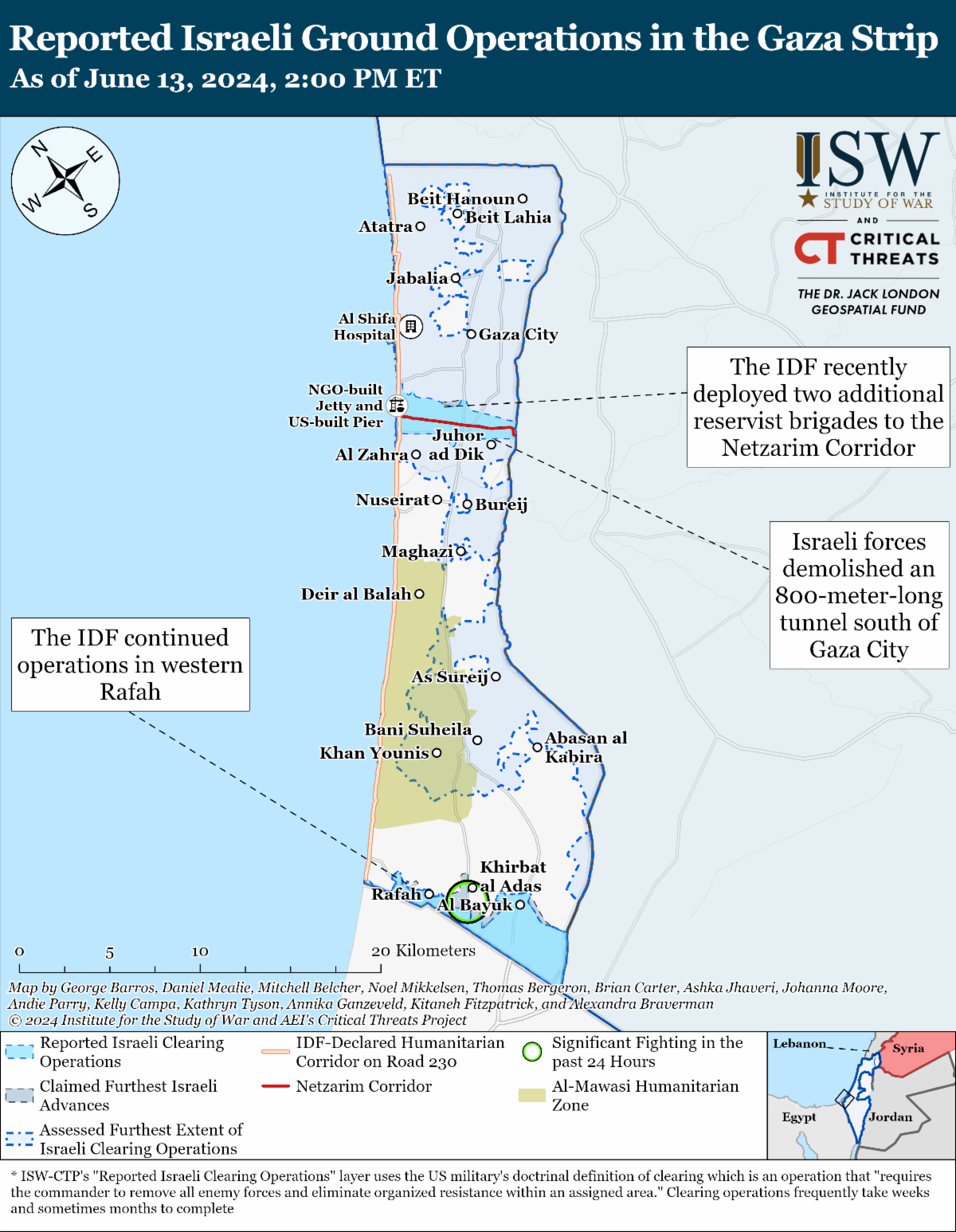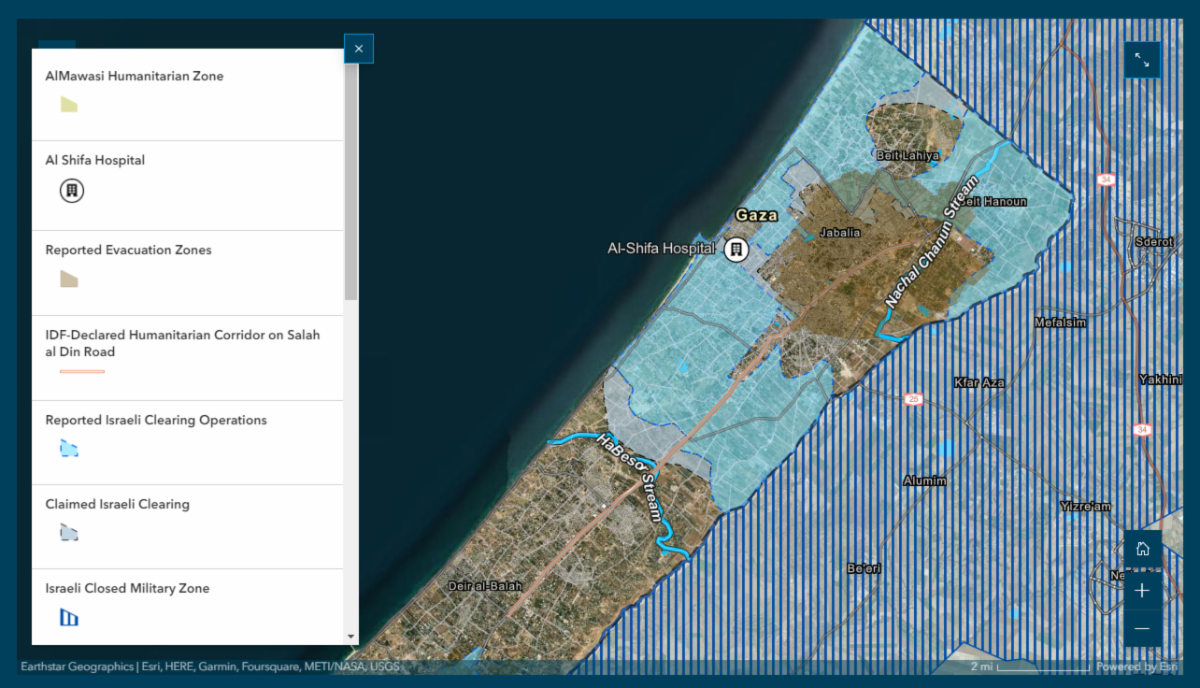Hamas is requiring Israel to meet its maximalist demands sooner than stipulated in the latest Israeli ceasefire proposal. Hamas has seemingly not shortened the timeline on which it would release Israeli hostages, however. Hamas issued new demands on June 11 in response to the latest Israeli ceasefire proposal. US Secretary of State Antony Blinken described the new demands as going beyond Hamas’ previous negotiating position and questioned whether Hamas is acting in good faith in the talks. The new demands involve Israel committing immediately to a permanent ceasefire, accelerating the timeline for reconstruction in the Gaza Strip, and making greater concessions on the release of Palestinian prisoners. Hamas also reportedly requested that Israeli forces withdraw sooner from the Gaza Strip. These changes would help Hamas secure most of its maximalist demands in the first phase of the proposed ceasefire deal and dilutes the second and third phases. An anonymous Hamas official speaking to Reuters downplayed the significant changes that Hamas made to the ceasefire proposal by framing the changes as insignificant and unobjectionable.”
Hamas’ changes are meant to force Israel to either accept the new demands or risk being perceived as the party that ended ceasefire negotiations. Israeli officials have indicated repeatedly that the latest proposal is the last one. Senior US officials, including President Joe Biden, have stated in recent weeks that Hamas remains the primary obstacle to a ceasefire agreement.
Hamas feels that it can manipulate the ceasefire negotiations in this manner because it is confident that it is winning in the Gaza Strip. Senior Hamas officials have repeatedly expressed confidence that Hamas will survive the war, despite Israeli military pressure. Hamas forces throughout the Gaza Strip remain combat effective and are trying to reconstitute. Hamas has also begun trying to reassert its political authority in some parts of the strip. Hamas has achieved this success by exploiting the fact that Israeli forces withdraw from areas in the Gaza Strip after clearing them rather than conducting follow-on holding operations.
Key Takeaways: - Gaza Strip: Hamas is requiring Israel to meet its maximalist demands sooner than stipulated in the latest Israeli ceasefire proposal. Hamas has not seemingly shortened the timeline on which it would release Israeli hostages, however.
- Yemen: The Houthis claimed for the second time that they conducted a combined attack with Iranian-backed Iraqi militias targeting Israel. They have conducted these attacks as part of a larger effort to impose an unofficial blockade on Israel.
- Iran: Iran is continuing to expand its nuclear program. Iran is installing new centrifuges to increase its uranium enrichment capacity. Iran has also negotiated with Niger to receive 300 tons of uranium yellowcake.
- Iran: Iranian hardliners are debating and negotiating amongst themselves to unite their faction behind a single candidate in the Iranian presidential election. The faction is concerned that the five hardline candidates will split the vote and advantage the sole reformist candidate.
| 






 [ISW] 이스라엘-하마스 전쟁(이란) 업데이트, 2024년 7월 2일
[ISW] 이스라엘-하마스 전쟁(이란) 업데이트, 2024년 7월 2일
 [ISW] 이스라엘-하마스 전쟁(이란) 업데이트, 2024년 5월 21일
[ISW] 이스라엘-하마스 전쟁(이란) 업데이트, 2024년 5월 21일